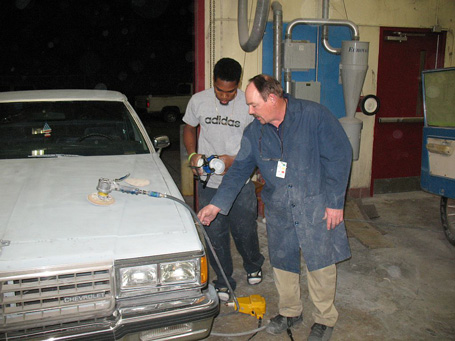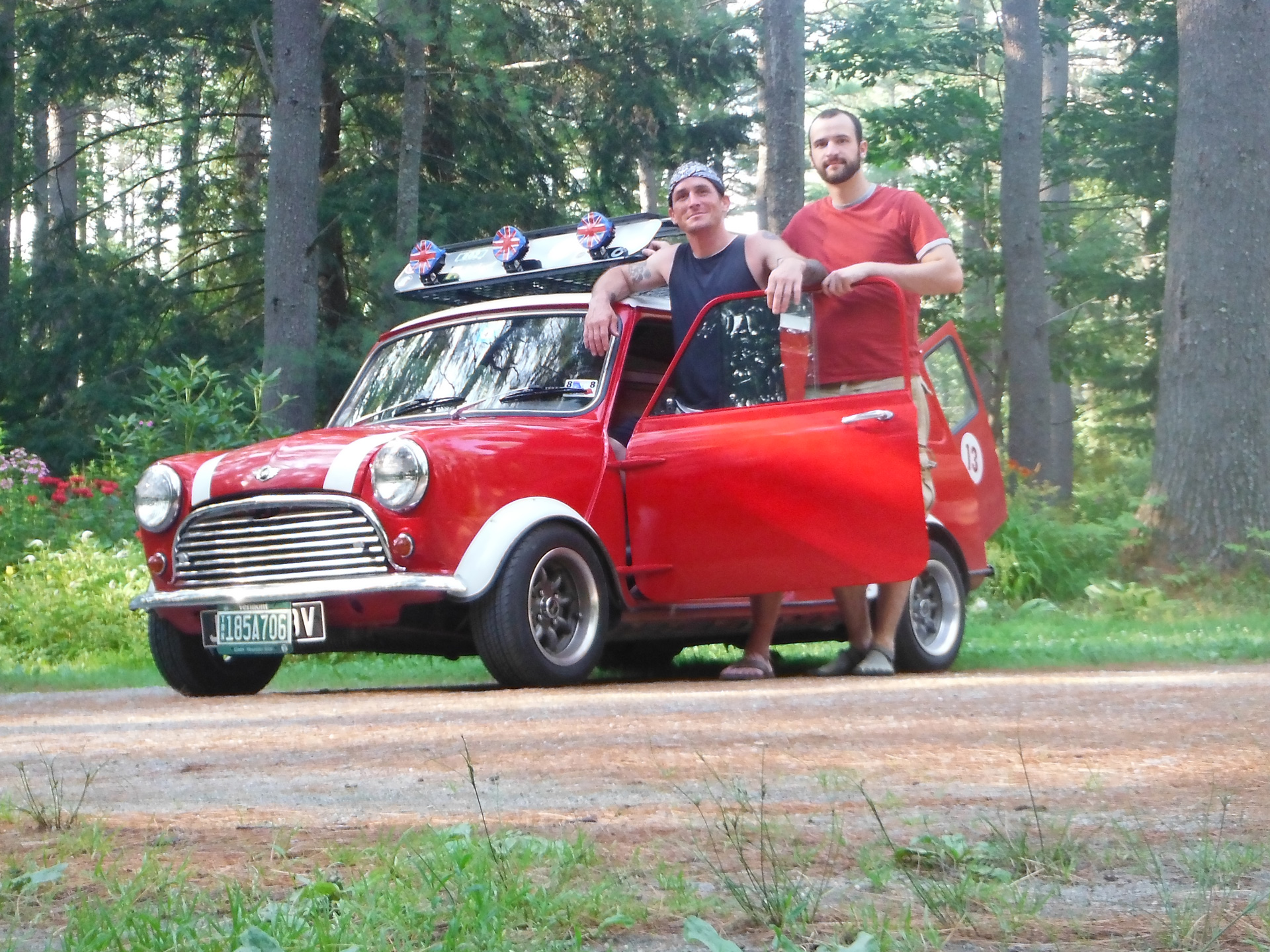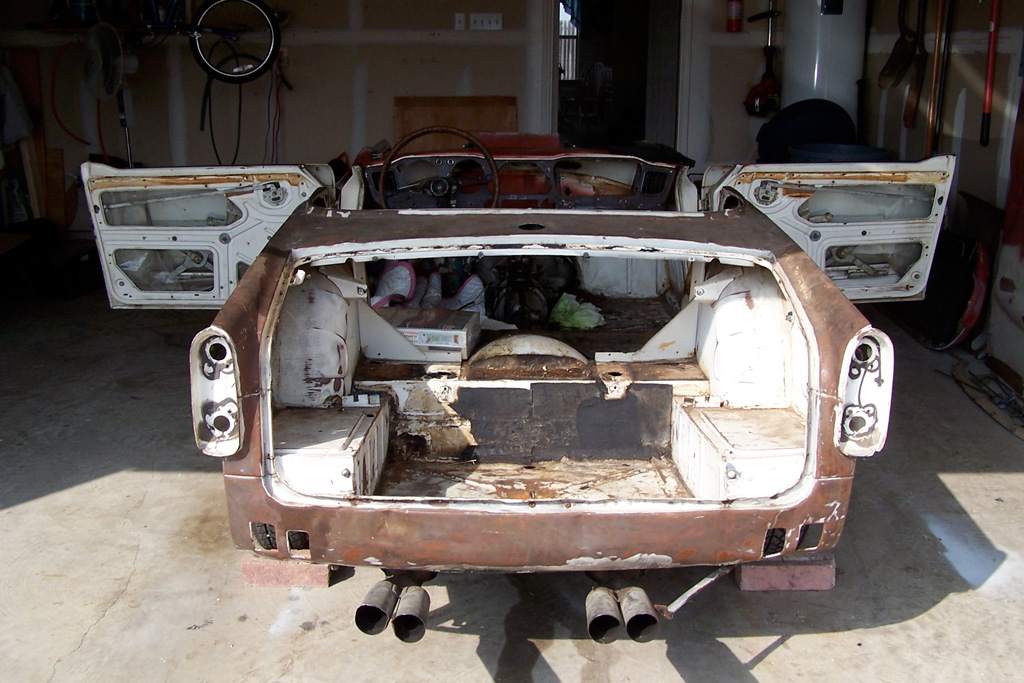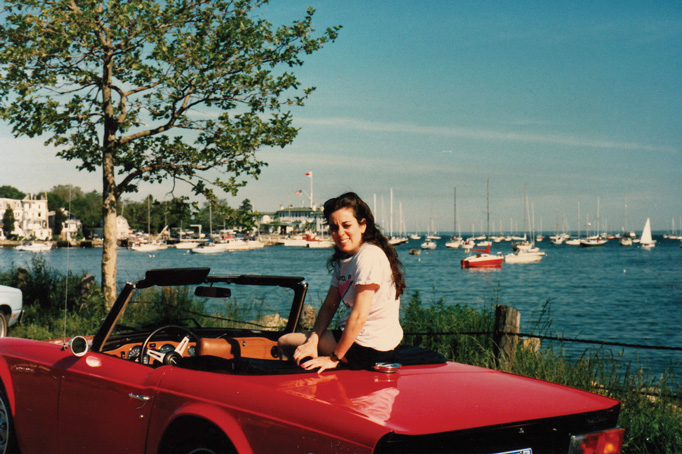Anyone who has owned older cars knows body shop skills are a real asset. A few years ago I searched for a class with which to hone my skills. I found a course at the Garrett Academy of Technology, a local vocational school. For years Garrett had an auto collision course but when its instructor left the school the course was abandoned and the tools vanished. However, the facility was excellent: a large shop area with a Kansas Jack frame table and a professional Binks downdraft paint room. The new instructor, Mike Branch is an expert at body repairs; he was also the assistant football coach at the school.

A couple of sessions into the class I needed a tool of some sort and asked Mike about it. He pointed to the tool room and said it was in there. When I looked around I was puzzled. The room was barren with a few mismatched screwdrivers and some random sockets. A couple of beat up DA sanders and some Martin body hammers completed the bleak scene. Most average car hobbyists have more tools in their garage. Mike’s budget turned out to be a meager $600 a year, since it was based on the number of students. It was not near enough to run an autobody repair course, the consumables alone, tape, putty, spreaders, filters, etc., would be much more than that.
On the way to the next class I stopped at a local discount tool store and bought a drill, some bits, air hoses and an assortment of fittings. When the class was repeated in the next semester fellow club member Dennis Wunsch, the Triumph guy, joined the class and saw the sorry state of affairs. The class was great but it was hard for Mike to make real progress, not only with us evening students, but more importantly with the day class. There were never enough tools for everyone to be working at the same time. Those kids would get bored with standing around and watching, and they’d quit the class.
Our car club donates any earnings from our annual car show to a worthy charity. Our president, Diane Lambert, wanted to focus our giving on what she described as, “Local, involved cars, and kids.” Dennis and I looked at each other: done and done. Garrett was our new beneficiary.
We’ve raised money though silent auctions—wonderful, enviable items are donated from individuals and businesses—and Mike and his crew of students run the big cooker at the show. The proceeds from the sale of the BBQ, hotdogs and hamburgers, and the earnings from the auction are pooled into an account at a local parts store where Mike can order tools and supplies whenever he needs them. In one year we raised more than $5,000 for tools.
Our car club and Mike’s course became more involved with each other and more club members have taken the evening course. The payoff to all this came home to me not long ago. I went up to Garrett late one afternoon to ask Mike’s advice about some paint or body issue. We leaned up against his raggedy pickup truck and listened to the sounds of hammers pounding away and the bwweeee of DA sanders and grinders in the shop. He said, “You know, we couldn’t be doing all this without all the tools the club bought for us. Just look at those guys in there going to it!”
It is not hard to see the real value that something this simple brings to the community. These are young guys, mostly from low-income families, who will never be major sports stars, but can now get a highly sought after trade skill that pays very well. Just as important, this opportunity provides the student with a lot of peer-level respect. Experts in the field of education like Kamau Bobb agree that this early exposure can potentially inspire a lifelong interest in these fields.
By Wray Lemke
British Car Club of Charleston









'School Tools' has no comments
Be the first to comment this post!